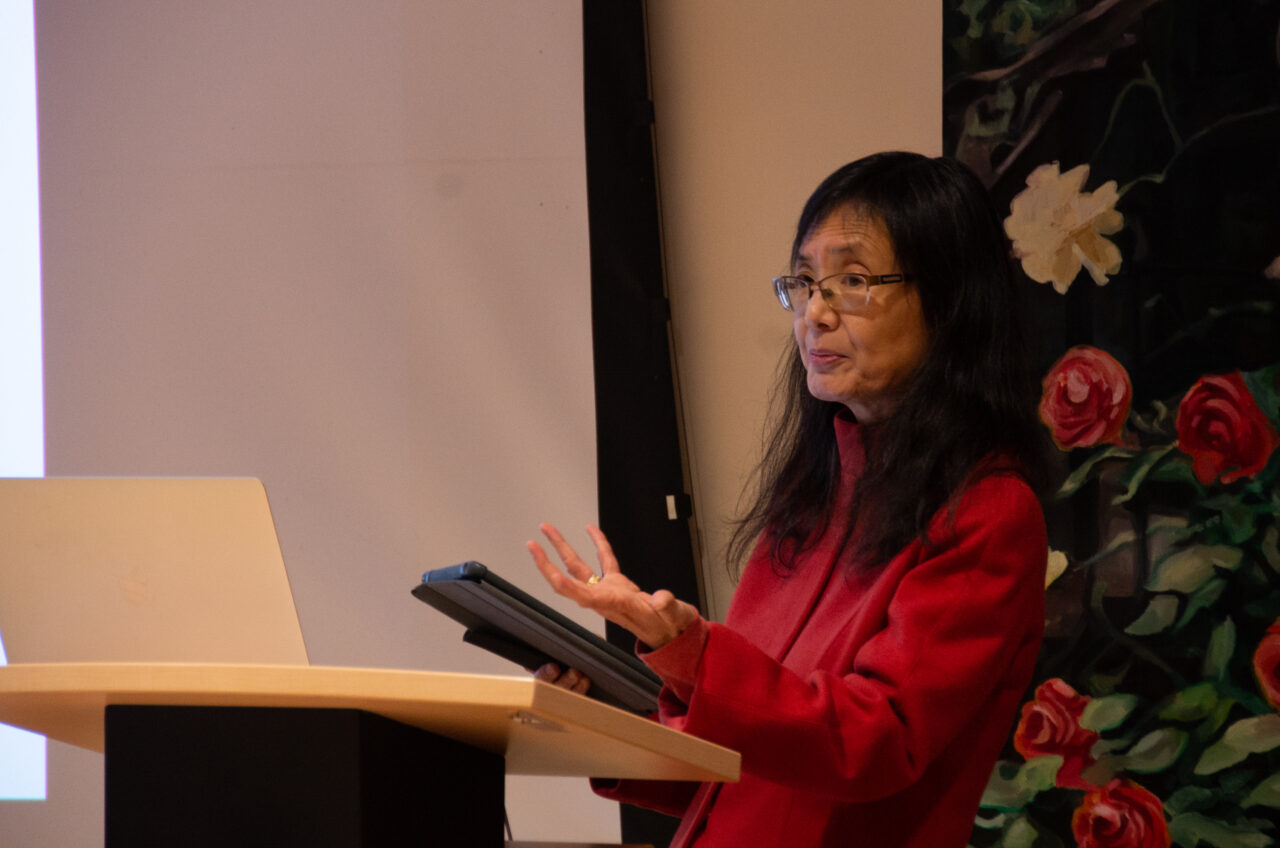Visiting Professor Talks Protest Music in Japan Following the Fukushima Nuclear Disaster

One spring day in 2011, 15,000 people gathered in the streets of Tokyo, all of them singing a song that had been released online just three days prior. It was a self-cover of a love song, but re-configured and lyricized to protest the use of nuclear power in Japan following the Fukushima nuclear disaster.
A tale of a teenage crush reignited at a high school reunion was turned into accusations of governmental lies about nuclear safety. Flickering love to unwavering anger. A sentiment that carried thousands to the streets.
The song “Zutto Suki Datta” (“I Always Loved You”) by Kazuyoshi Saito, which was famous for its appearance in a cosmetics company commercial, was transformed to “Zutto Uso Datta” (“It Was Always a Lie”) and became an anthem of the anti-nuclear demonstrations in the wake of the disaster, according to Noriko Manabe, Associate Professor of Music Studies at Temple University.
“This flipping of the original sentiment into political anger through well-chosen word substitutions underlined its bitterness,” Manabe said. “‘It was always a lie’ gave voice to the fear and anger that Japanese residents were feeling, but could not say immediately following the earthquake and tsunami that triggered the nuclear accident.”
Manabe gave an hour-long talk on Japanese protest music following the disaster in the Mansfield Freeman Center for East Asian Studies Seminar Room on March 7. She walked students and faculty through several examples of how protest music was used to bring anti-nuclear protest movements forward. Many of the examples she highlighted were reformed versions of existing songs, like Saito’s.
Some didn’t even include the words “nuclear power” or “radiation” for fear of censorship by the music industry, she said. The artists sometimes used modified allegories to criticize the nuclear village, overconsumption, and those in power through metaphor. Others used costumes to critique the nuclear power industry, like Japanese hip-hop group Scha Dara Parr, who dressed as Tokyo power utility executives apologizing at a news conference in a poster.
“Japanese protest songs and hip-hop tracks offer important hints for how we in North America might intervene in and speak back against issues here, too—issues that often transcend national borders, like racism, misogyny, socioeconomic inequality, and more,” Scott Aalgaard, Assistant Professor of East Asian Studies and event organizer, said.
Aalgaard said he hopes that attendees “came away inspired by the Japanese examples that she shared, but that they also left feeling just a little better prepared to devise strategies for tackling these issues here at home.”
Manabe also made an appearance in Aalgaard’s CEAS 285: Popular Music Revoluntionaries in Modern Japan class on March 7.

